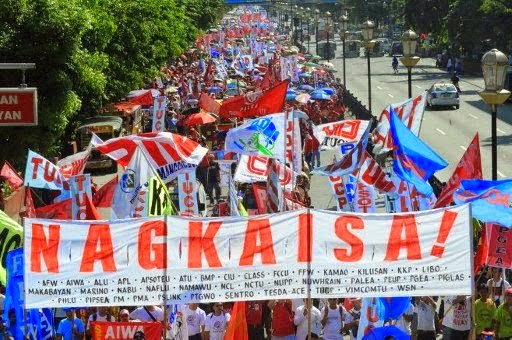"The moment I assume the Presidency, contractualization will stop. They have to stop it."
"What I will do is call the Speaker and the Senate President after their elections and everybody, may constitution na doon, internal, then I will call on mostly the majority, mga Liberal congressmen, you pass this bill immediately. Senate, sabihin ko, I need it first week of my administration."
"You will not just lose money, you will also lose pants. No tolerance ako dito, ito ang pangako ko sa tao. Stop contractualization. It will not do good to our country. Huwag na ninyong hintayin na mahuli kayo ni Sec. Bello. Kapag nalaman ko, I will simply close your plant and I can find a thousand reason to do it.
"I am warning you, you choose: stop contractualization or I will kill you. You know why… I am the President. I am here. I have immunity."
Zero tolerance, therefore, is the correct and strategic policy change to pursue.
Now, is the impending issuance of Department Order No. 30 (DO30) in line with the early pronouncements of the President and in accordance with workers' unanimous demand to end all forms of contractualization? NO!
DO30 falls short of what has been promised by DU30. It will only perpetuate contractualization. No wonder that the employers and the manning agencies are celebrating it!
Workers do not deserve this odious holiday and year-ender present from the government.
In digest, the new DO simply simulated in new fashion the framework of recognizing trilateral employment relations. It perpetuates the failed logic of regulation which, during the last several decades, has allowed and legitimized the business of labor contractualization done in many ways and in different forms.
This has to stop. The perpetuation of trilateral employment relation, which DO30 continues to recognize in the form of job/service contracting of specialized, project and seasonal jobs, is more of a system upgrade rather than a change in the policy itself. Hence, we denounce it as UNACCEPTABLE.
Ayaw namin ng mga middleman, sa anyo ng mga agency at cooperative, na ginagawang negosyo ang pangangalakal ng aming lakas paggawa. Nais namin ay DIRECT HIRING at ipagbawal ang FIXED-TERM employment.
Thus, if the President was really true to his campaign promise and to the commitment he made to end contractualization upon his assumption to office, we call on him to set aside DO30 for reasons cited above, notwithstanding its failure to secure acceptance from labor groups as well as endorsement from the National Tripartite Industrial Peace Council (TIPC).
We request that the President hold a personal dialogue with labor leaders to exchange ideas on how to really end endo. And in the meantime, in the absence of a new DO or a new law, the President should likewise consider issuing an Executive Order that expressly prohibits all forms of contractualization, or certify as an urgent administration measure the enactment of HB 4444 (Mendoza, TUCP PL) that seeks to prohibit and criminalize contractualization.
Matatapos na ang taong 2016 sa susunod na dalawang araw. Ang kontraktwalisasyon kailan pa ba magwawakas?














